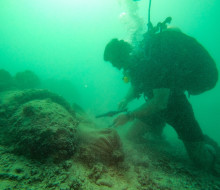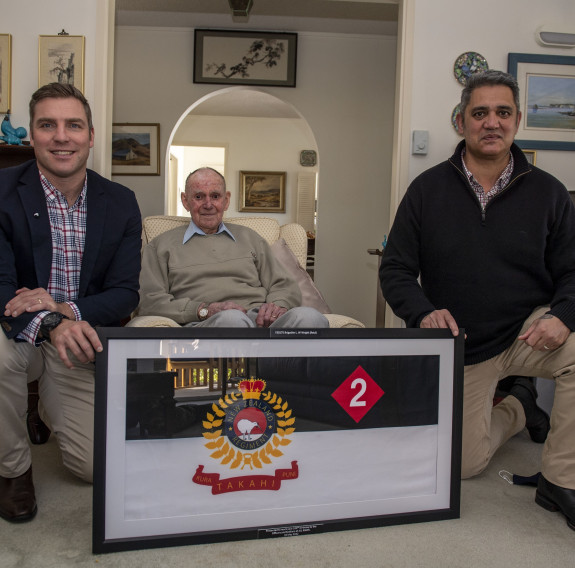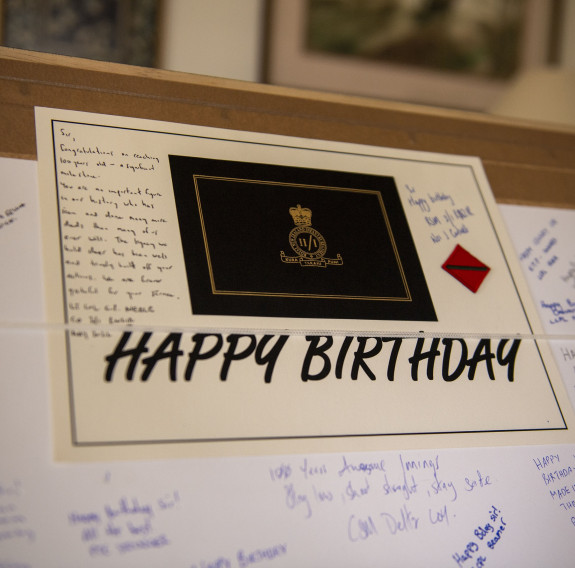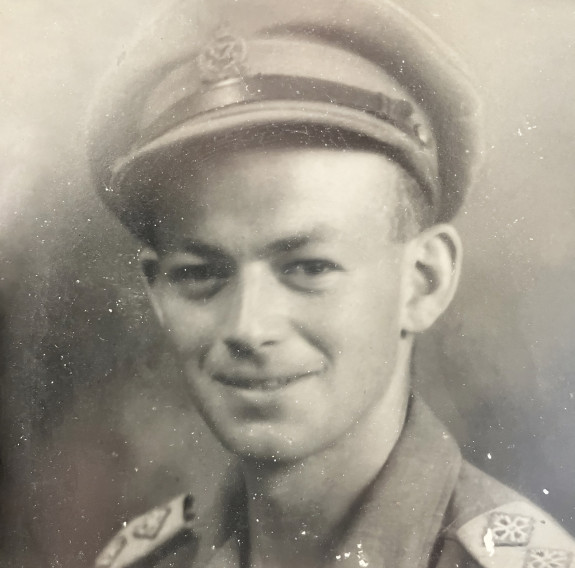
Second World War-era bombs in Vanuatu made safe by Navy divers
26 June 2024
Unfortunately you are viewing this website on an outdated browser which does not support the necessary features for us to provide an adequate experience. Please switch to a modern browser such as latest version of Google Chrome, Mozilla Firefox, Apple Safari or Microsoft Edge.
Ngā mihi nui
102-year-old New Zealand Army veteran, Brigadier (retired) Les Wright MBE, says the Battles of Cassino were his ‘baptism for war’.
He’s reflecting on some of the New Zealand forces’ most gruelling and costly battles of the Second World War, as a New Zealand Defence Force (NZDF) contingent makes its way to Italy to pay respects to those who served and fell there 80 years ago.
NZDF personnel will support the New Zealand National Commemorative Service at the Cassino War Cemetery and a New Zealand Service of Remembrance at the Cassino Railway Station, next week.
Brigadier (Rtd) Wright, who lives on Auckland’s North Shore, enlisted in February 1941.
He served at Cassino from 12 April 1944 as a gunner with the 30 Battery, 6th Field Regiment, New Zealand Artillery and can vividly recall his first night of fighting.
“Our journey started late afternoon when our convoy was put together, in shelter from a ridge of German observation. As soon as it was dark, we set off turning a corner facing Cassino across the valley two miles away.
“What I could see was a backdrop with little white flashes all over it. The noise of the vehicle I was in covered the sound, but the flashes were shells being fired at the Germans over Monastery Hill.”
Situated at the head of the Liri Valley, Cassino was a key point in the Gustav Line - a chain of German defences in the Italian mountains south of Rome. The battles to capture the town would ultimately open the pathway to the liberation of Rome and success in the Italian campaign.
The close-combat ferocity of the fighting there had few parallels during the Second World War. At Cassino, the 2nd New Zealand Division along with 4th Indian Division, comprised the New Zealand Corps commanded by Lieutenant-General Sir Bernard Freyberg. Fighting units included six New Zealand infantry battalions an armoured brigade, divisional artillery and engineer units totalling 17,000 men.
Of the 1,481 casualties the New Zealand Division suffered through February and March 1944, 343 lost their lives.
After the New Zealand Division withdrew in early April, Cassino eventually fell in May 1944 to British and Polish troops - with support from the New Zealand artillery.
Brigadier (Rtd) Wright said it’s difficult to think about his experiences at Cassino.
“The first dead German I saw, the thing that went through my mind was ‘there’s a poor mother somewhere who has lost her son’.
“I had no feeling of animosity against the Germans across the other side of the no-man’s land. He was doing for his Commander what I was doing for mine.
“On many occasions this was the subject of our discussions and was always in the back of my mind,” he said.

On his 100th birthday on 10 May 2022, members of 2nd/1st Battalion presented Brigadier (retired) Les Wright with their framed Regimental Pennant, signed on the back by the whole battalion.

On his 100th birthday on 10 May 2022, members of 2nd/1st Battalion presented Brigadier (retired) Les Wright with their framed Regimental Pennant, signed on the back by the whole battalion.

Les Wright in 1944, aged 21, when he was serving as a gunner with the 30 Battery, 6th Field Regiment, New Zealand Artillery
Brigadier (Rtd) Wright said he learnt some sharp lessons early on in his career, including discovering what it was like to be a target when he was driving a jeep and ‘a very keen German gunner’ tried to hit him.
After surviving this near-miss, he took an opportunity to inspect the historic Benedictine monastery atop the 500-metre-high Monte Cassino, from which the enemy could overlook the valley below.
And there he discovered a moment of beauty amidst the carnage.
“The northern side of the building was badly damaged by aerial bombardment. To get into the Abbey, there was a hole just big enough for one to go inside.
“I found a window looking to the south, towards the area I had been located. The walls of the Abbey were about four feet thick and the window ran at the end of an opening.
“On each side of the stone wall running down, was an egg-white-based painting of the view from the window, which was beautifully executed and remains in my memory very clearly. The monk who painted it had great talent.”
Warrant Officer Class 1 Matt Gates is the Regimental Sergeant Major for 2nd/1st Battalion, and the Ceremonial Colour Officer for the NZDF contingent in Cassino.
He said he plans to try and find the painting that Brigadier (Rtd) Wright remembers so fondly.
“Hopefully, I can capture that memory for Les and present him with a framed photo if it still exists today.”
After the Italian Campaign, Brigadier (Rtd) Wright went on to finish his war in Japan, before setting off for home on Christmas Eve 1946.
“I eventually got to Sydney on 30 December to re-join my future wife, whom I hadn’t seen for three years. On 4 January 1947, Mary and I married and we travelled back to New Zealand. We were married for 67 years and it wasn’t long enough,” he said.
Brigadier (Rtd) Wright served in the New Zealand Army for 36 years. He has a special connection to 2nd/1st Battalion, as he was their Commanding Officer in the 1960s.
The Regimental Colour of 2nd/1st Battalion, which bears the Battle Honour CASSINO I, will be paraded at both services next week, along with the 28 (Maori) Battalion Banner.
Brigadier (Rtd) Wright has some advice for young soldiers; “There is no finer involvement one can take than service in the protection of your nation.”
He was awarded the honour of Member of the Most Excellent Order of the British Empire (MBE) in 1960 for his military service.